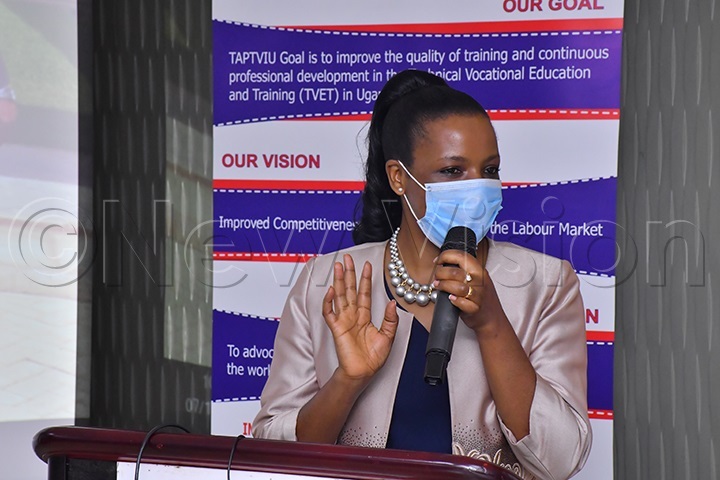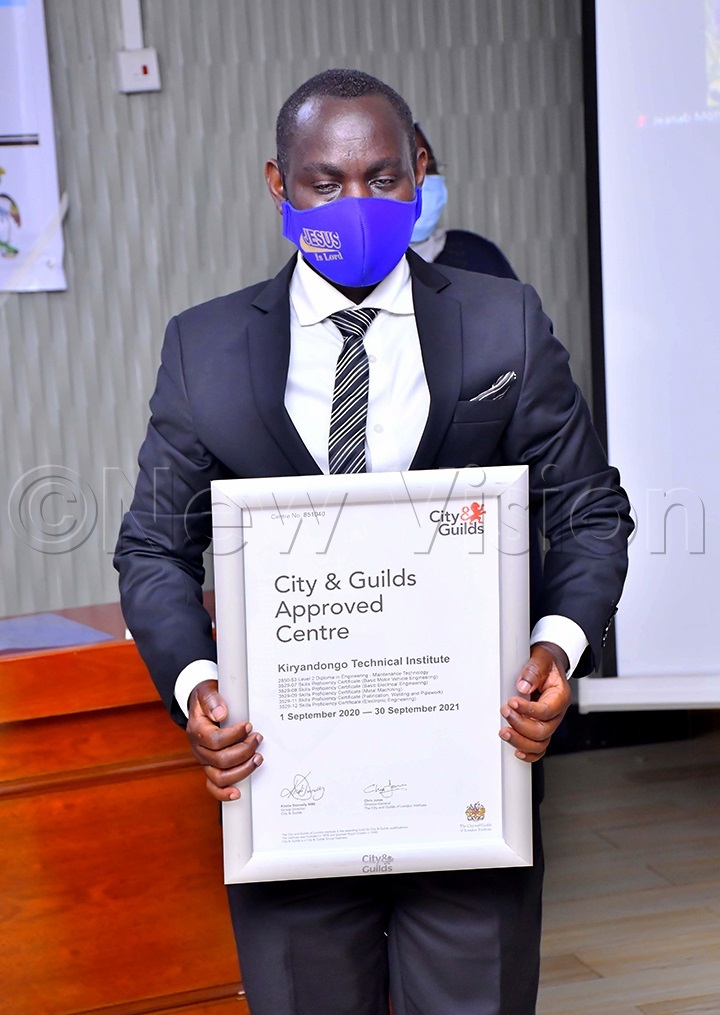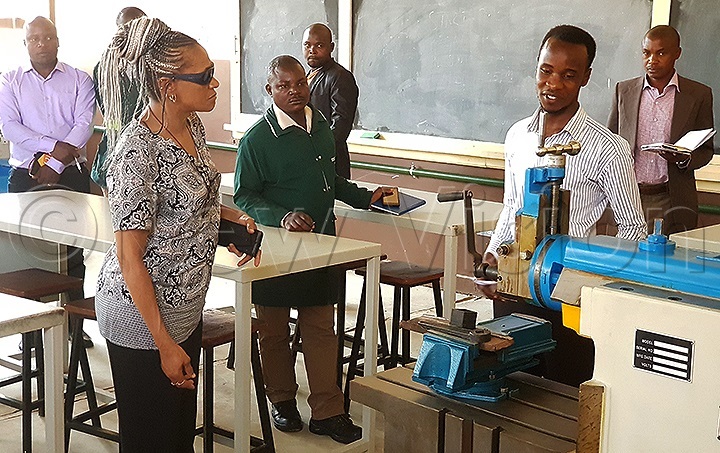Qualifying for oil & gas sector jobs eased
Oct 08, 2020
Possessing international qualifications is one of the key requirements for getting employed in the oil and gas sector.

EDUCATION SKILLING OIL & GAS
Acquiring essential skills needed in Uganda's oil and gas sector has been made easier.
This follows a move through which four technical and vocational institutions have been accredited to offer training that leads to international qualifications.
Possessing international qualifications is one of the key requirements for getting employed in the oil and gas sector because they are the only qualifications cognized by international companies in that sphere.
The institutions that include Kiryandongo, Nawanyago, Kabatsi and Iganga technical institutes have been certified by City & Guilds, a UK-based accreditation institution that offers assessment for competencies that are needed in different spheres of work.

These are beneficiaries of grants extended by the Skills Development Fund (SDF), a government programme run by the Private Sector Foundation Uganda (PSFU) that seeks to equip Ugandans with the requisite skills needed in the oil and gas sector.
This is an employer-led short-term training that recognises those with skills acquired through prior learning.
It targets to equip Ugandans with skills like artisanship, craftsmanship & masonry, plumbing, welding, metal fabrication & scaffolders, electricians, pipefitters, machining & fitting, heavy goods vehicle drivers, machine operations, health and safety.
The programme targeted to accredit at least 3,830 craftsmen and artisans in the manufacturing and construction sector with international certifications, as well as 700 artisans certified with the directorate of industrial training.

It also targeted to get 150 drivers certified in heavy goods vehicles with the East African Community curriculum.
Uganda is currently in advanced preparation stages of commercially exploiting its oil and gas resource that was discovered in 2006.
Up to $20b is expected to be invested in the sector and up to 160,000 workers shall be required for this stage. According to the Petroleum Authority of Uganda, about 112,000, representing 70%, of these will be technicians and craftsmen.
Ruth Musoke, the SDF head said many Ugandans were losing out on employment opportunities in the sector despite holding national qualifications.
"This is because international oil companies like Total and CNOOC only recognize international qualifications," Musoke said during the accreditation handover function at Hotel Africana on Wednesday.
Under the grant, Ugandan training institutions were given opportunities to come up with training programmes that would be assessed to meet international standards for oil and gas sector.
City & Guilds sent an initial assessment team that identified several challenges that included improper documentation of processes that they were using to train their students, lack of testing equipment and little knowledge about output-based assessment.
"Some of the procedures were not in a proper sequence. We had to align them to deliver quality graduates. In addition, the institutions didn't have quality management systems in place," Eddy Turyatembas, the chairperson of The Association of Public Technical & Vocational Training Institutes of Uganda told the New Vision.

To bridge the gaps, the institutions with the SDF funding procured new equipment, materials and trained their assessors in quality and systems management.
The accreditation covers at least six of the most in-demand courses in the sector and these are Level 2 diploma in engineering that teaches fabrication and welding, basic motor vehicle engineering, basic electrical engineering, metal machining, electronic engineering, basic plumbing and an introductory certificate in welding skills.
"We started with these because they are the most needed qualifications in the sector. We are preparing ourselves to go for further accreditations for more courses," Turyatemba said.
Prior to this certification, it was only the Uganda Petroleum Institute Kigumba that was accredited to offer international qualifications.
